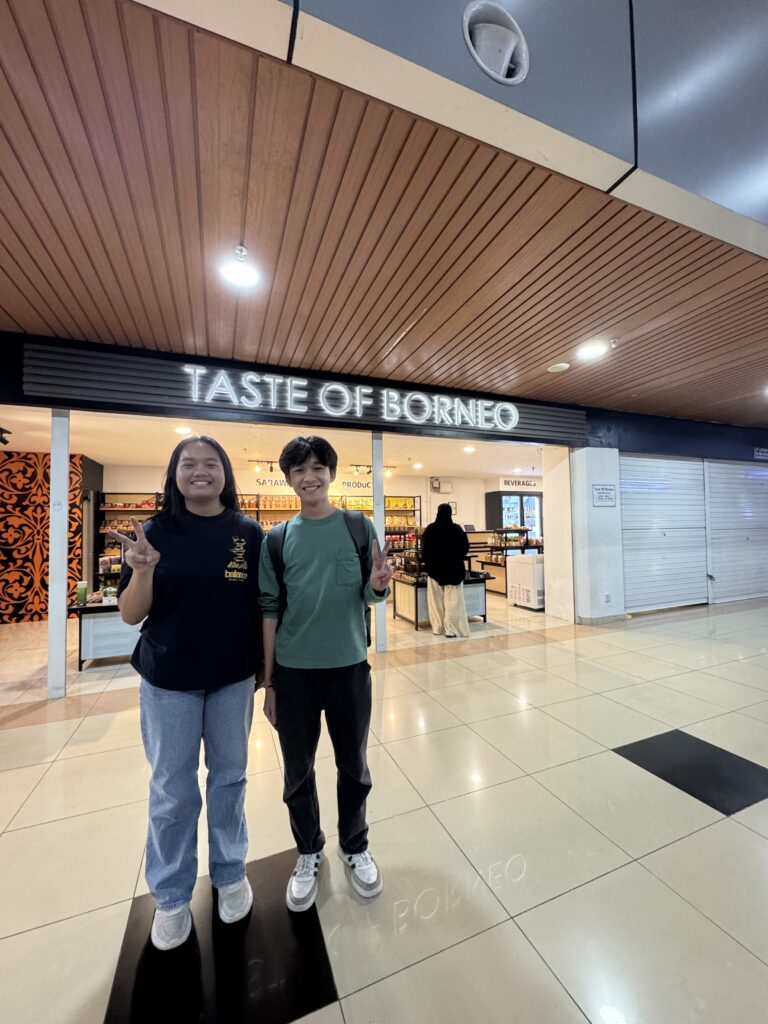
The semester break often provides students with a time to rest, but for Agrotechnology students at Universiti Malaysia Sarawak (UNIMAS), it became an opportunity to expand knowledge, serve communities, and experience new cultures. This year, two students demonstrated how learning and service go beyond the classroom, representing UNIMAS in academic and volunteering activities abroad. Their stories reflect the spirit of Agrotech, combining science, technology, and humanity for sustainable impact.
Exploring AI in Agriculture: Summer Course at Universitas Gadjah Mada, Indonesia
Aniesse Elliana Sunny, a Bachelor of Science in Agrotechnology student (Year 2), joined the 7th Summer Course FTP UGM 2025: Artificial Intelligence Applications for Advancing the Agri-food Industry in Yogyakarta, Indonesia. Supported by UNIMAS Global, the programme provided her with invaluable exposure to how artificial intelligence is reshaping agriculture. The programme began with online assignments from 21 to 27 July 2025, which helped participants build strong academic foundations before travelling to Yogyakarta for the onsite sessions from 27 July to 2 August. Grouped with students from Indonesia and Vietnam, Aniesse engaged in cross-cultural teamwork, enhancing both technical and interpersonal skills.
Lectures delivered by experts from Indonesia, Malaysia, Japan, and Spain deepened her understanding of advanced agricultural practices. A highlight was Dr. Andri Prima Nugroho’s lecture on AI and IoT in Smart Agriculture, stressing the role of young innovators in tackling food security under climate change. Another impactful session by Dr. Ridwan Wicaksono on Deep Learning for Precision Agriculture introduced tools such as convolutional neural networks (CNNs) and hyperspectral imaging, showing how technology supports disease detection, yield prediction, and precision farming.
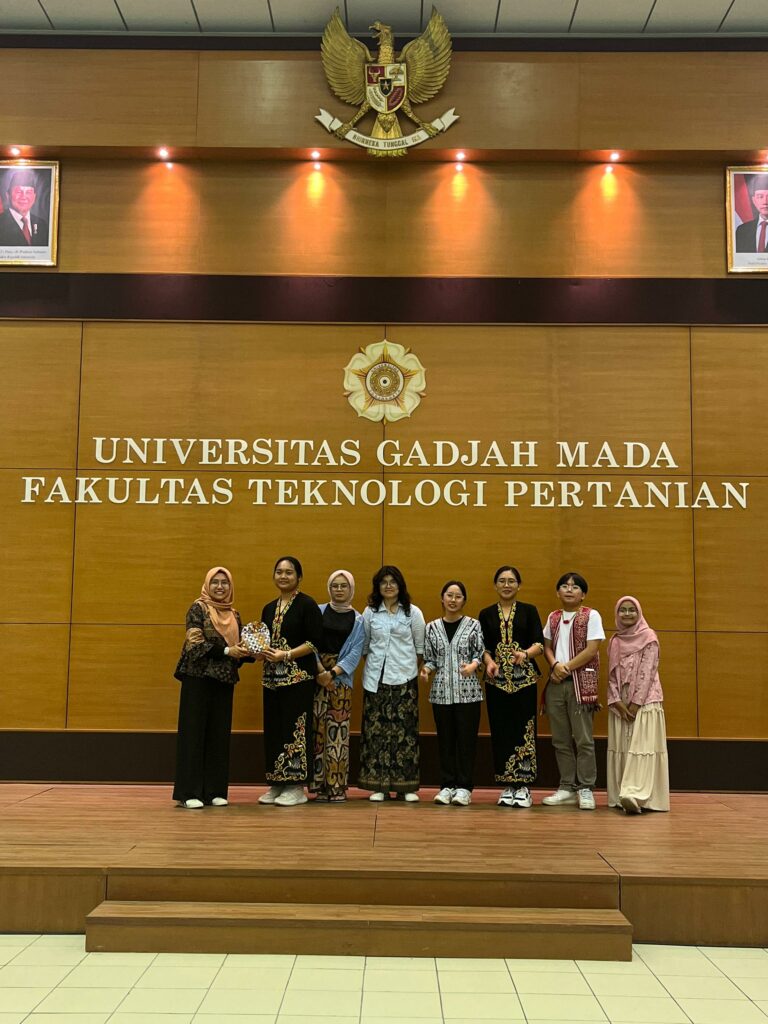
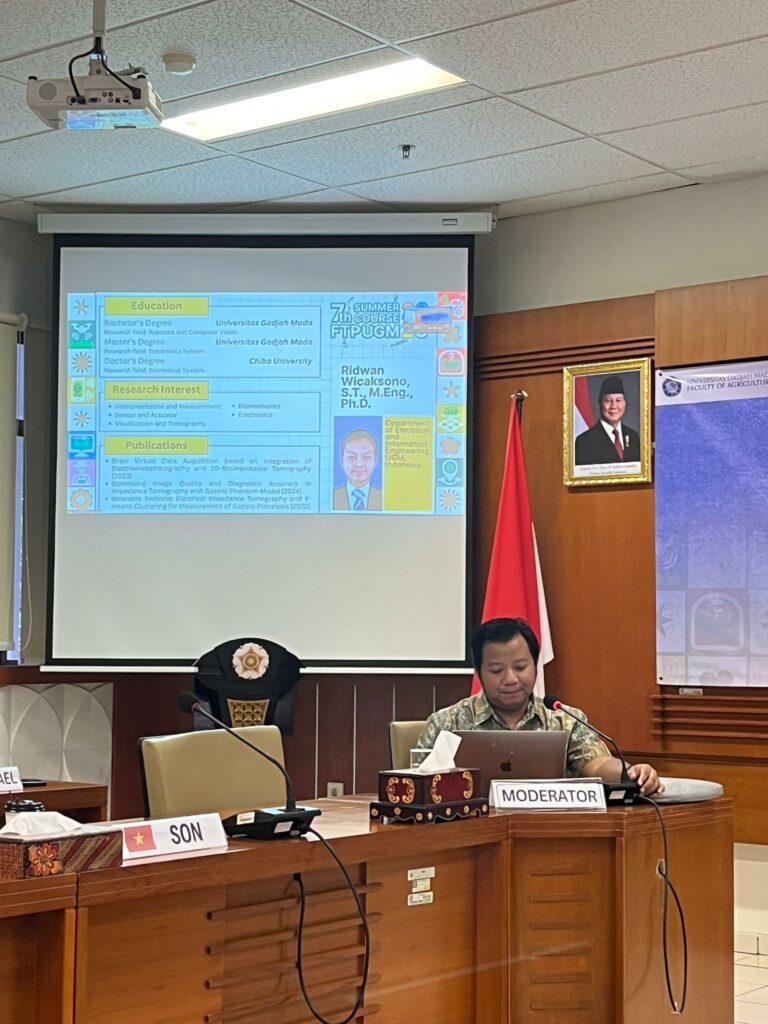
Practical field visits brought these concepts to life. At the Plant Factory UGM, Aniesse observed controlled vegetable production supplying hospitals with fresh, safe produce. A trip to SIPASI in Kulon Progo demonstrated how solar-powered IoT irrigation systems manage water distribution across rice fields, a model of sustainable farming. She also explored research facilities focusing on 3D printing for sensors, chocolate processing, and melon farming, where she experienced harvesting firsthand.
Cultural immersion was another highlight. From learning batik painting to performing the Malaysian Sumazau dance during the closing ceremony, Aniesse gained greater appreciation for regional heritage. Together with fellow Malaysian delegates, she proudly secured 3rd place in the cultural performance competition. Reflecting on her experience, she noted that the programme not only enhanced her academic knowledge but also inspired her to pursue further innovation in sustainable farming through AI.
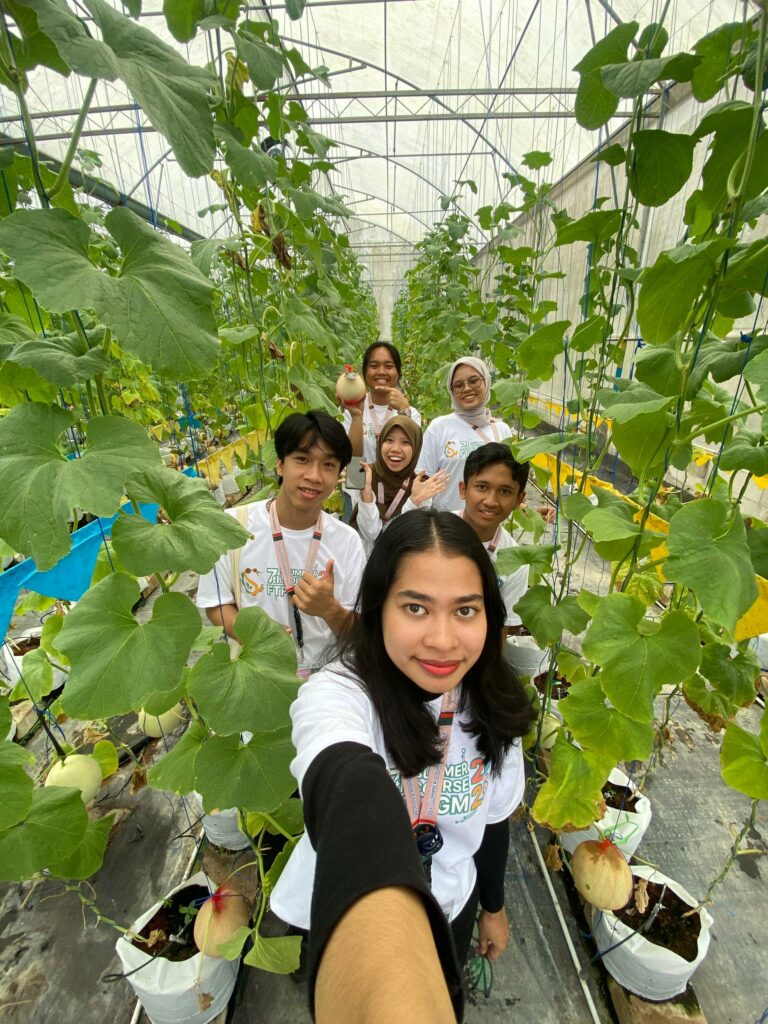
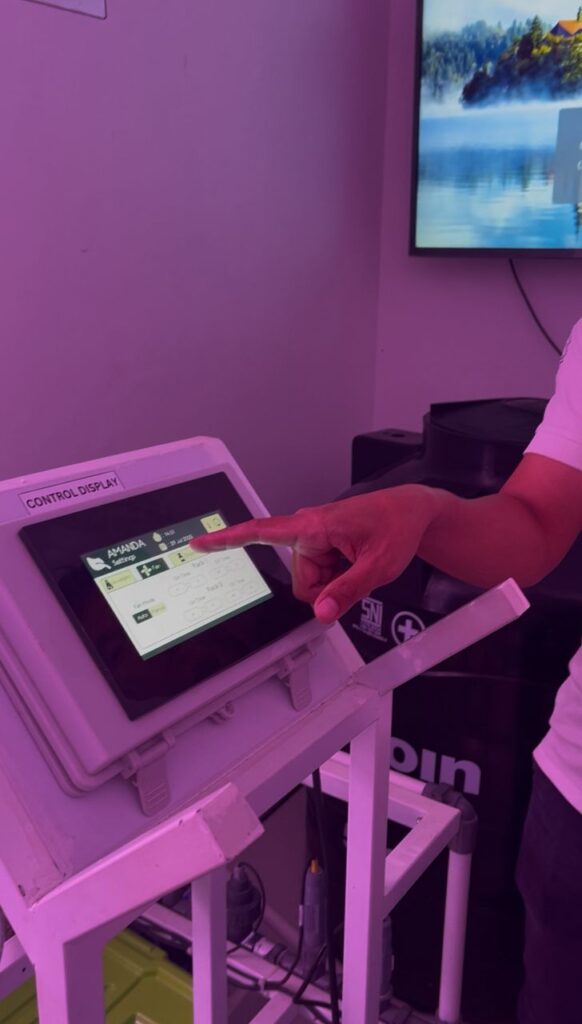
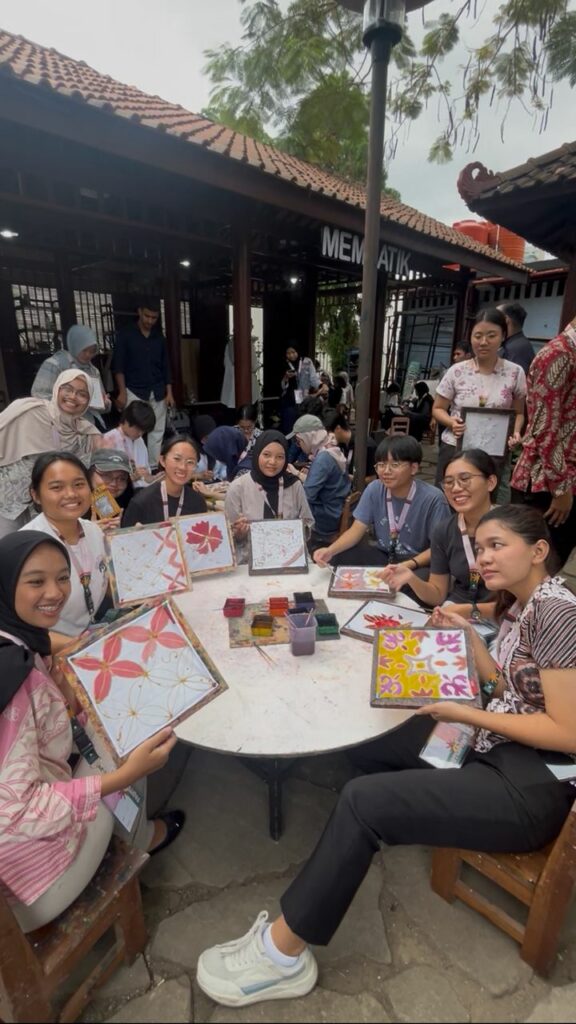
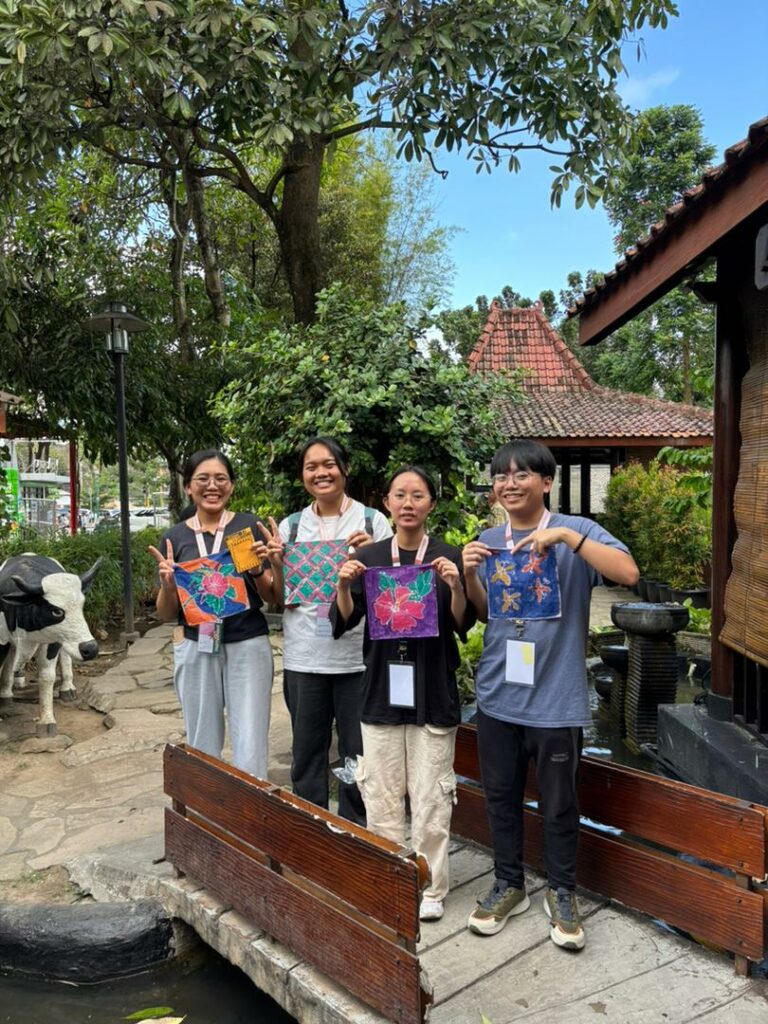
Service with Heart: Volunteering at Bangkok Community Help Foundation, Thailand
Meanwhile, Theristus Daniel Leo, also from the Agrotechnology programme (Year 2), devoted his semester break to community service under the EICW 3.0 Mobility Programme. On 28 July 2025, he joined fellow UNIMAS and Universitas Tanjungpura (UNTAN) participants for a volunteering visit to the Bangkok Community Help Foundation (BCF). BCF is a non-profit organisation dedicated to providing food, healthcare, education, and disaster relief to underserved communities in Bangkok. Every day, the team prepares 500 meals for the needy, a challenging task made lighter by the help of volunteers.
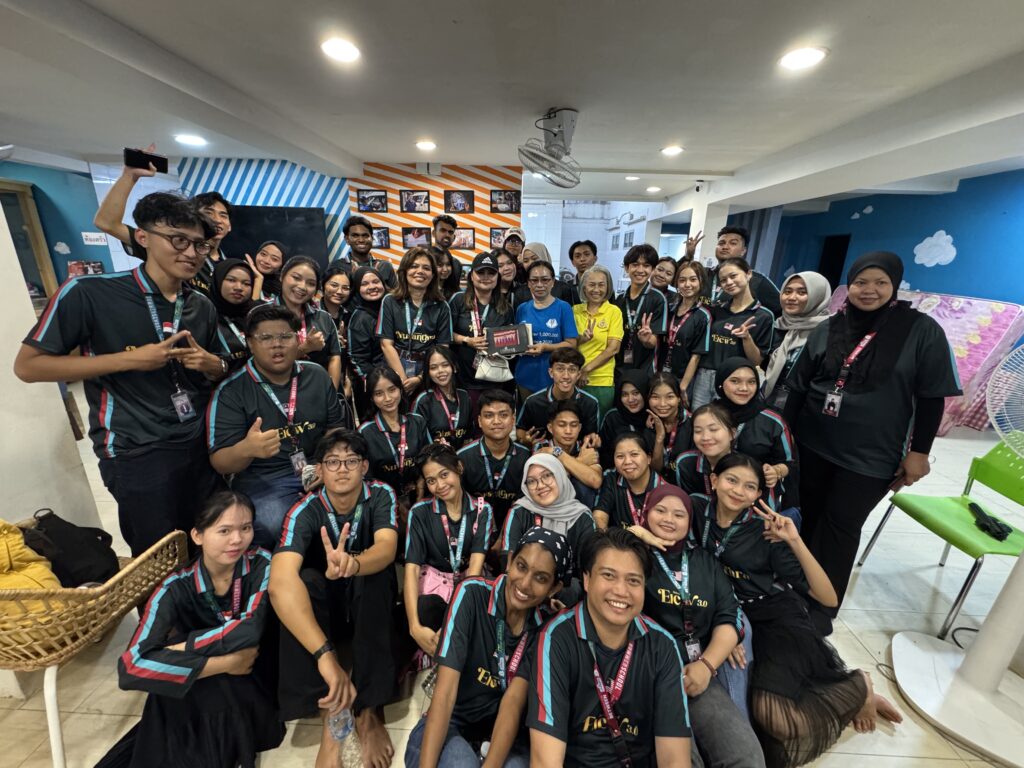
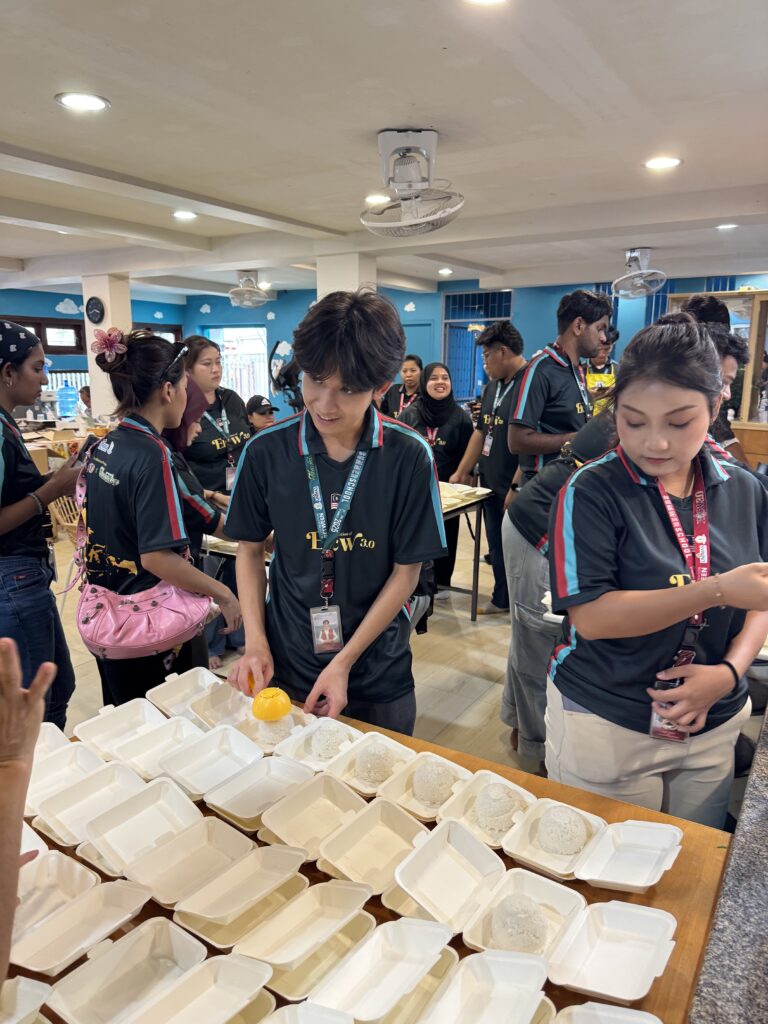
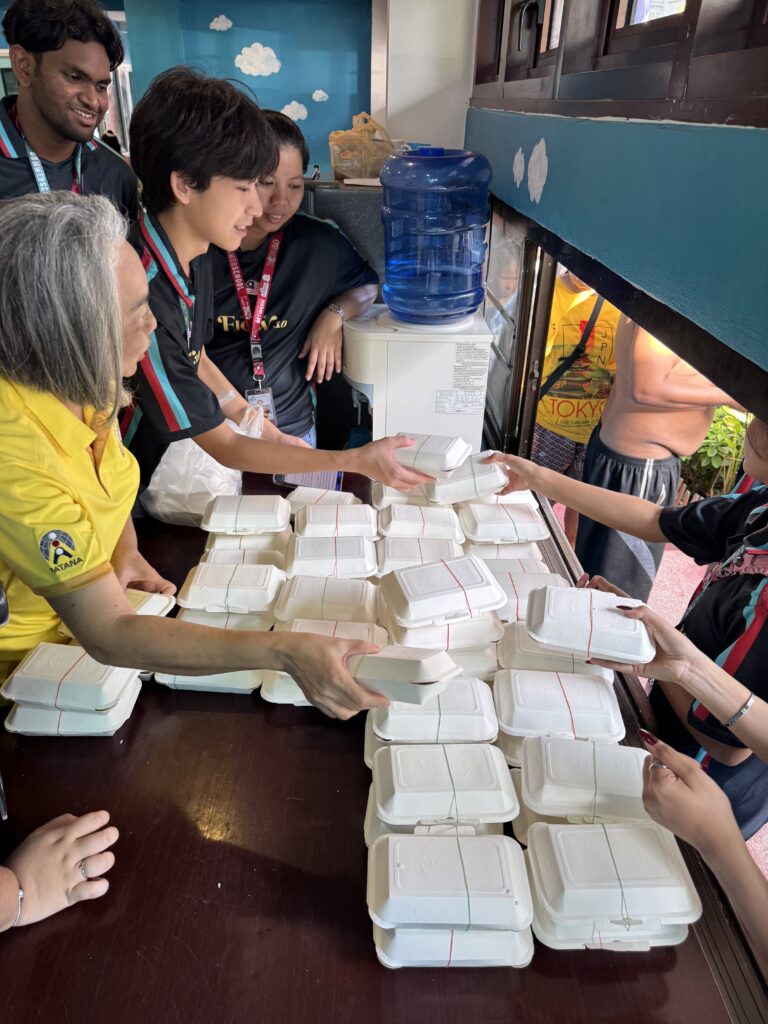
UNIMAS students participated in meal preparation, cooking, and food distribution. Theristus’s role was distributing packed food at the BCF office, where allocation was based on a receipt system. Some students also delivered meals directly to bedridden individuals who could not leave their homes. Witnessing the gratitude of children, mothers, and elderly recipients left a deep impression on him.
Despite language barriers, communication with caretakers was made possible through translation tools and gestures. For Theristus, this underscored the universal language of compassion. “It has allowed me to reflect that there is so much we can do as students to offer help,” he shared. “This trip taught me to be empathetic and grateful. Helping others not only supports the community but also enriches our own lives.”
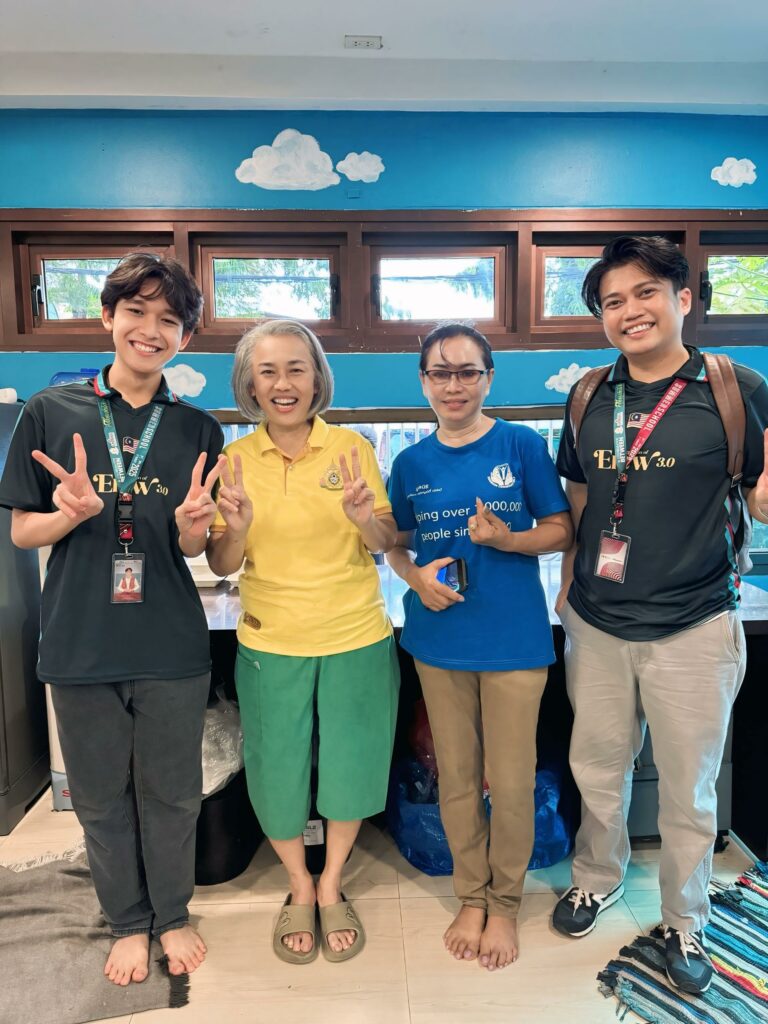
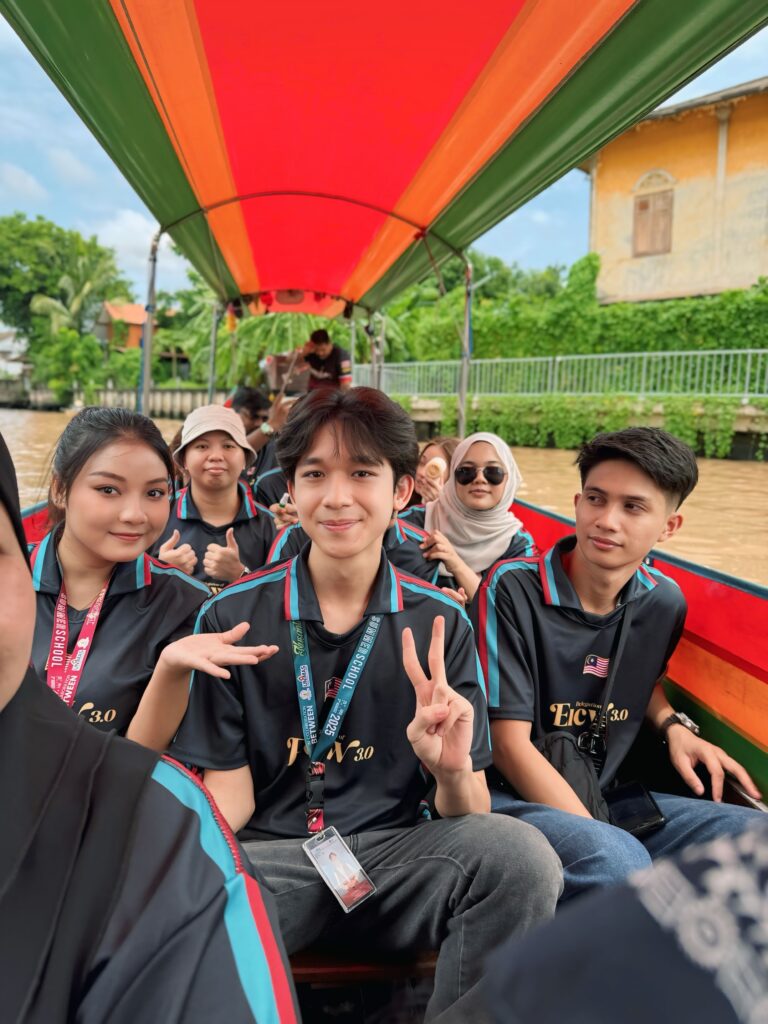
Agrotech Beyond the Classroom
The experiences of Aniesse and Theristus exemplify how Agrotechnology students at UNIMAS are encouraged to use semester breaks not only for rest, but for academic growth, global engagement, and community service. One advanced her knowledge of AI applications in agriculture, while the other practiced humanitarian values by serving disadvantaged communities.
Both journeys highlight the holistic vision of the Agrotechnology programme, to produce graduates who are not only technically skilled but also socially responsible and globally aware. By merging science with service, and innovation with empathy, these students show how Agrotech is shaping the future of agriculture while nurturing compassionate leaders.
Their stories remind us that education is not confined to lecture halls. It flourishes in laboratories and fields, but also in cultural exchanges, community kitchens, and volunteer-driven initiatives. As UNIMAS Agrotech students continue to explore opportunities during semester breaks, they embody the university’s mission: “to be globally connected, community-driven, and future-focused.
Prepared by: Ts. Dr. Bernard Maringgal